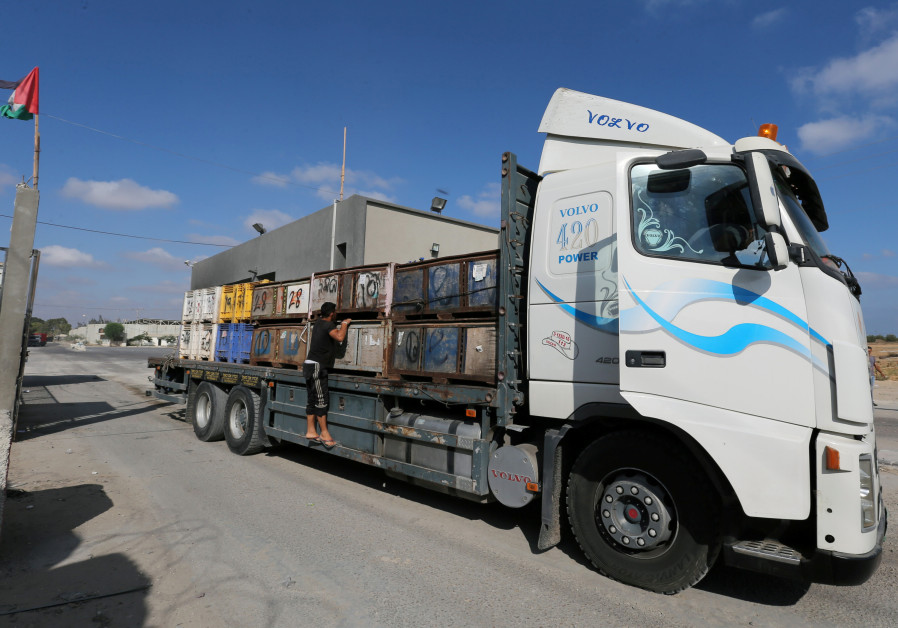U.N.: Israel’s ban on commercial goods for Gaza could escalate conflict

A Palestinian man rides on a truck carrying fruits as it arrives at Kerem Shalom crossing in Rafah in the southern Gaza Strip (July 10, 2018). (photo credit: REUTERS)
The United Nations said it was concerned Israel’s decision to halt the flow of commercial goods into the Gaza Strip through the Kerem Shalom crossing could escalate its conflict with Hamas.
“Everyone must step back from the trajectory of confrontation and escalation,” UN Special Coordinator to the Middle East Peace Process Nickolay Mladenov said on Tuesday.
He spoke in response to Prime Minister Benjamin Netanyahu’s decision to issue the harshest restrictions on Gaza’s main commercial crossing since the 2014 war with Hamas.
As of Tuesday morning only humanitarian supplies, such as food, medicine and fuel could enter the strip.
Israel’s decision to impose severe economic sanctions on Gaza comes fours months after Hamas and Islamic militants in Gaza have launched flaming kites into southern Israel that has scorched large swaths of fields along the southern border.
It also comes in the midst of a major US push to put in place an economic package that would ease life for the two million Palestinians in Gaza, that are also suffering from Palestinian economic sanctions and living on four hours of fuel a day.
“I am concerned by the consequences of Israel’s decision to temporarily suspend imports and exports with the exception of basic humanitarian supplies through the Kerem Shalom crossing,” Mladenov said on Tuesday.
“Humanitarian assistance is no substitute for commerce and trade. I urge the authorities to reverse this decision,” Mladenov said.
“Hamas and other Palestinian factions in Gaza should also do their part by maintaining calm, stopping incendiary kites and preventing other provocations,” Mladenov said.
He has also been working on a humanitarian plan for Gaza that includes reuniting Fatah and Hamas.
“The United Nations is continuing its engagement with Israeli and Palestinian counterparts, as well as regional and international partners, to reduce tensions, support intra-Palestinian reconciliation and resolve all humanitarian challenges. This latest development must not divert us from this urgent course of action,” Mladenov said.
Israel has long imposed an aerial and naval blockade on Gaza. In addition Gaza lacks a seaport large enough for cargo ships to dock.
All supplies to Gaza, commercial and otherwise, must therefore enter by land.
There are three crossings into Gaza, two controlled by Israel and one by Egypt. The Israeli-Gaza crossings are at Erez for pedestrians and Kerem Shalom for goods and fuel.
The Egyptian crossing is at Rafah, but it is often closed and it lacks the infrastructure that would allow it to be a main commercial crossing.
Egypt has recently opened the Rafah crossing and some commercial goods have entered the Strip through that crossing.






Comments are closed.